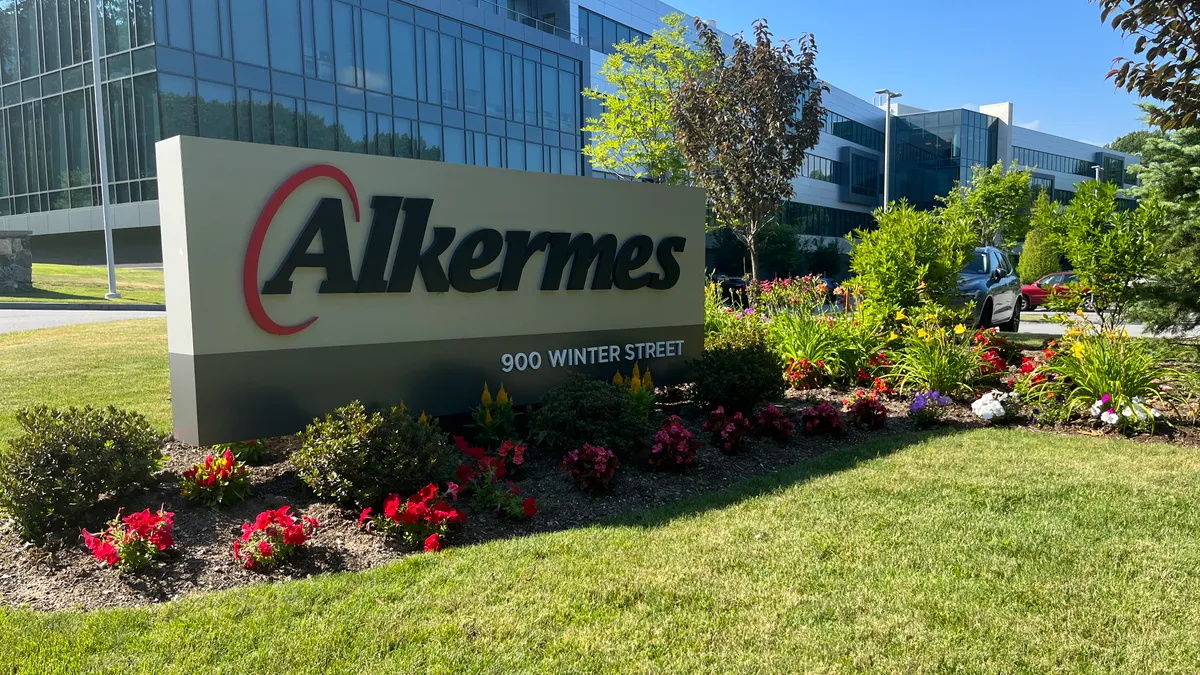Oncology research is progressing at a rapid clip, giving new hope to patients who once lacked options. However, gaps still remain. Immunotherapies, in particular, have propelled cancer treatment forward greatly — but not all patients can benefit from them.
Alkermes, a global biopharmaceutical company headquartered in Dublin, is looking to fill some of those gaps by homing in on novel therapies for patients with challenging cancers and scarce to zero treatment options. The company, which also seeks to treat serious mental illnesses such as schizophrenia and addiction to opioids and alcohol, is in the cancer game to expand the landscape.

“While we recognize that many patients have benefited from the significant medical advancements in cancer therapy following the introduction of immunotherapies, many patients still need more treatment options, as they are either not eligible for or have experienced disease progression on immunotherapies, such as checkpoint inhibitors,” says Craig Hopkinson, chief medical officer and executive vice president of research and development at Alkermes. “Of those patients currently eligible for immunotherapies, only a small portion (approximately 12%) are estimated to respond to them.”
The company, leaning on its expertise in advanced protein engineering and medicinal chemistry, is hoping to give those patients better options, while sidestepping some of the toxic side effects that have plagued similar immuno-oncology drugs in the past.
“Our evolution into oncology was guided by our strong commitment to help patients living with complicated and often difficult-to-treat diseases,” Hopkinson says. “Alkermes coupled this passion with our unique protein-engineering and medicinal chemistry capabilities to develop our oncology pipeline.”
The company is targeting established immune pathways, looking to improve on the potential to harness the patient’s immune system to fight cancer, Hopkinson says. Its oncology pipeline currently includes clinical and preclinical stage products, including its lead candidate and first oncology molecule, nemvaleukin alfa, an IL-2 variant immunotherapy, which is in phase 2 for a rare form of melanoma called mucosal melanoma (MM) and a phase 3 for a type of ovarian cancer that is resistant to platinum-based chemotherapy called platinum-resistant ovarian cancer (PROC).
Here, Hopkinson outlines the company’s goals and progress toward bringing its oncology products to market.
This interview — conducted via email — was edited for length and clarity.
PharmaVoice: What distinguishes nemvaleukin alfa and the company’s other oncology products from existing cancer immunotherapies?
Craig Hopkinson: Nemvaleukin alfa is a novel redesigned investigational cytokine, which is being developed with the objective to leverage the known anti-tumor effects of interleukin-2 (IL-2), while mitigating certain toxicity issues which have historically limited the use of this cytokine. We aimed to harness the known efficacy of this approach. Through nemvaleukin’s selectivity for the intermediate-affinity IL-2 receptor with the aim of not stimulating the high affinity receptor, we are exploring the potential to mitigate the adverse effects of high dose IL-2 as well as drive an increase in cancer-fighting immune cells.
Through our ARTISTRY clinical program, we have observed single-agent nemvaleukin activity, an important objective in the IL-2 space. Additionally, we have seen initial responses in combination with pembrolizumab (Keytruda from Merck & Co.) in tumor types where other treatment options are approved but, also in tumor types like PROC, where one would not expect to see a PD-1 response. This suggests that nemvaleukin may contribute clinical benefit when used in combination regimens with other cancer treatments like checkpoint inhibitors.
Nemvaleukin is currently the only investigational IL-2 in development that has received FDA fast track designations in two indications, as monotherapy in MM and in combination with [Keytruda] in PROC, as well as orphan drug designation in MM.
Are there any other potential applications for nemvaleukin alfa aside from PROC and MM?
Beyond melanoma and PROC, we are interested in investigating the potential of nemvaleukin in a combination regimen to help address other areas of high unmet patient need based on the emerging preclinical and clinical data. We recently presented data from our ARTISTRY clinical program that included anti-tumor data in renal cell carcinoma, which currently remains a cancer type with high unmet need, and we are exploring potential opportunities to expand the study of nemvaleukin in this category of patients.
Can you tell me about the potential applications for the company’s other oncology candidates, IL-12, IL-18 and HDAC inhibitors?
The progress being made with nemvaleukin is part of a broader effort by Alkermes to develop novel cytokine-based therapies designed to upregulate immune response, while avoiding toxicities, to drive anti-cancer activity. We are applying lessons learned from nemvaleukin to our IL-12 and IL-18 oncology candidate programs, which are currently in preclinical development. Regarding our HDAC inhibitors, it is an exciting target, and we are exploring its potential utility in pre-clinical studies as a potential oncology agent.
How do Alkermes’ products fit in with the oncology industry's drug development trends?
Since immune checkpoint inhibitors were first developed and launched in the early 2000s, we’ve seen a rapid expansion of immuno-oncology development programs for various cytokines as anti-cancer agents. Within the IL-2 space, specifically, the immuno-oncology revolution has shown that improving the ability of T cells to fight cancer is a potential option as we have seen with Proleukin. This provided a strong rationale for revisiting the validated IL-2 pathway to investigate if its cancer-fighting ability could be selectively harnessed by designing molecules that target the intermediate-affinity receptor.
Alkermes is at the forefront of IL-2 development, with our ARTISTRY clinical program which has yielded important initial data as both monotherapy as well as in combination with PD-1 therapy. Our later-stage clinical trials, ARTISTRY-6 and ARTISTRY-7 are evaluating nemvaleukin in MM and PROC, respectively, and are both currently actively enrolling.
What are the company’s goals in the next five to 10 years?
We are currently exploring several cytokines in the oncology space and are expanding our footprint in immuno-oncology. In the next five to 10 years, we hope to bring nemvaleukin and our investigational agents in the pipeline to market to help patients who are impacted by difficult-to-treat cancers with high unmet need.

















